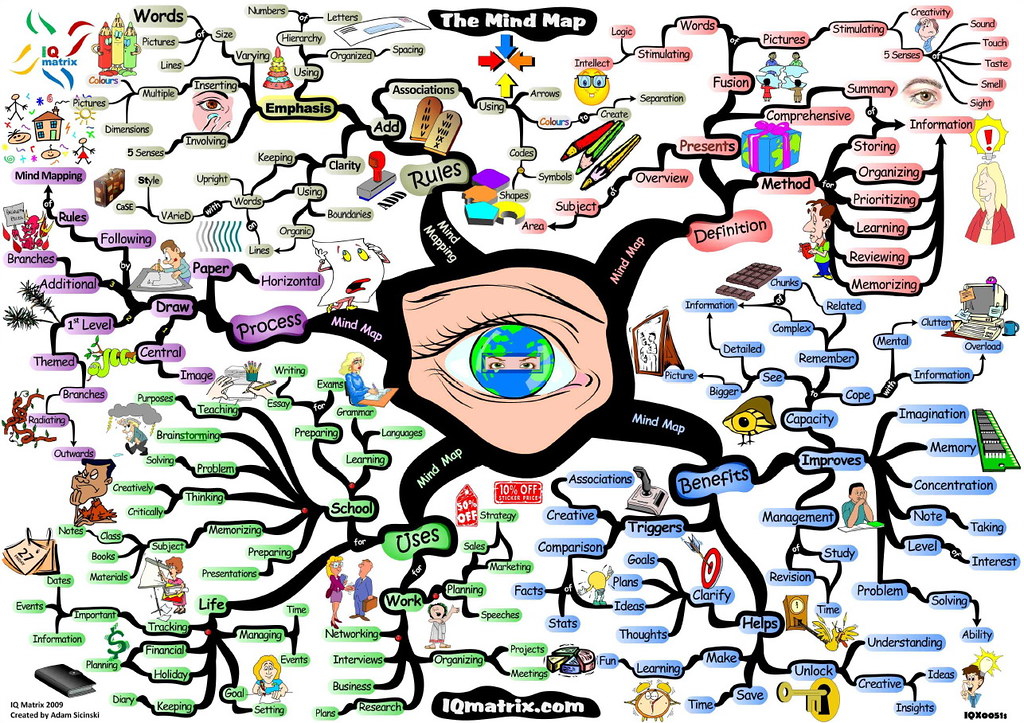The History and Controversy of Mind Control Experiments

“How to Mind Map” by zipckr is licensed under CC BY 2.0.
Mind control, often referred to as brainwashing, has been a topic of fascination and fear for decades. The idea that an individual’s thoughts, behaviors, and beliefs can be manipulated by external forces is both intriguing and terrifying. This article explores the history of mind control experiments, focusing on some of the most infamous programs and their lasting impact.
Early Concepts and Theories
The concept of mind control has roots in ancient history, with various cultures exploring ways to influence human behavior. However, the modern understanding of mind control began to take shape in the early 20th century with the advent of psychology and psychiatry. Researchers started to investigate how hypnosis, suggestion, and other techniques could alter a person’s mental state.
MK-ULTRA: The CIA’s Secret Program
One of the most notorious mind control programs was MK-ULTRA, conducted by the CIA during the Cold War. Initiated in the early 1950s, MK-ULTRA aimed to develop techniques for mind control to counter perceived Soviet advances in the field. The program involved a wide range of experiments, including the use of drugs, hypnosis, sensory deprivation, and electroshock therapy.
1. Drug Experiments: LSD (lysergic acid diethylamide) was a central focus of MK-ULTRA. The CIA believed that LSD could be used to manipulate minds and extract information from unwilling subjects. Unwitting individuals, including CIA employees, military personnel, and civilians, were given LSD without their knowledge or consent, leading to severe psychological effects.
2. Hypnosis and Sensory Deprivation: Researchers also explored the use of hypnosis and sensory deprivation to control behavior. Subjects were placed in isolation tanks, deprived of sensory input, and subjected to hypnotic suggestions. These experiments aimed to break down an individual’s resistance and implant new thoughts and behaviors.
3. Electroshock Therapy: Electroshock therapy was another method used in MK-ULTRA. High doses of electricity were administered to subjects to erase memories and alter their mental state. This technique was believed to make individuals more susceptible to suggestion and control.
The Fallout and Public Outcry
The existence of MK-ULTRA remained a closely guarded secret until the 1970s when investigative journalism and congressional hearings brought it to light. The revelations sparked public outrage and led to widespread condemnation of the CIA’s actions.
1. Legal and Ethical Issues: The experiments conducted under MK-ULTRA were highly unethical and violated numerous laws and human rights. Subjects were often unaware they were part of an experiment, and many suffered long-term psychological damage as a result.
2. Impact on Victims: Many victims of MK-ULTRA have come forward to share their experiences, describing the lasting impact on their mental health and well-being. Some have sought legal recourse, but the secretive nature of the program has made it difficult to obtain justice.
3. Influence on Modern Practices: The techniques developed during MK-ULTRA have influenced modern interrogation and torture methods. The program’s legacy continues to be felt in debates over the ethics of psychological manipulation and the use of such techniques in intelligence and military operations.
Modern Mind Control Concerns
While MK-ULTRA is one of the most infamous examples, concerns about mind control persist today. Advances in technology and neuroscience have raised new ethical questions about the potential for manipulating human behavior.
1. Digital Manipulation: The rise of digital technology has introduced new forms of mind control. Social media platforms and targeted advertising use algorithms to influence user behavior and shape public opinion. The potential for misuse of these technologies has led to calls for greater regulation and oversight.
2. Neurotechnology: Advances in neurotechnology, such as brain-computer interfaces and neural implants, offer exciting possibilities for treating neurological disorders. However, they also raise concerns about the potential for misuse in controlling thoughts and behaviors.
3. Ethical Considerations: The ethical implications of mind control remain a topic of intense debate. Researchers and policymakers must balance the potential benefits of these technologies with the need to protect individual autonomy and prevent abuse.
Conclusion
The history of mind control experiments, particularly the CIA’s MK-ULTRA program, serves as a stark reminder of the potential for abuse when scientific research is conducted without ethical oversight. As technology continues to advance, it is crucial to remain vigilant and ensure that the pursuit of knowledge does not come at the expense of human rights and dignity.
Please watch this documentary for a better understanding on the world of mind control.


